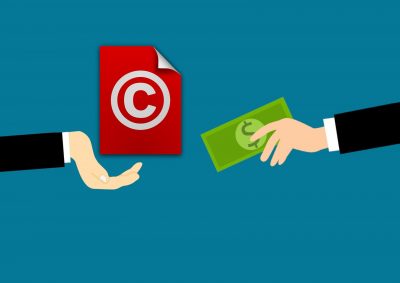Definition

A licence is a contract on the use of intellectual property rights (trade mark, patent, copyright, design –> Chapter 10 Intellectual Property Law). However, it is also possible to license know-how that does not constitute an intellectual property right. Both are often combined in licence agreements. The word «licence» comes from the Latin «licet», which means «it is permitted». In Switzerland in particular, a licence is a so-called innominate contract, i.e. a contract that is not regulated in Swiss law; surprisingly, it is not yet, since the licence contract is one of the most frequently concluded contracts today. According to the system (I have never counted them …), there are currently 160 apps on my iPhone alone, i.e. software applications whose right of use is covered by at least one licence each.
Difference between licence and purchase agreement
The licence and the purchase agreement differ in the scope of the transfer of rights. While a licence merely transfers a right of use to the licensee, a purchase agreement transfers ownership to the buyer.
Parties to a licence agreement
With a licence agreement, the licensor transfers to the licensee the right to use an intellectual property right or know-how (s. above). Ideally, the contracting parties are named in this way at the beginning of the contract so that their names or companies do not have to be written out repeatedly in the rest of the licence.
Scope of the licence
In a licence agreement, the scope of the transfer of the rights of use must also be regulated factually (e.g. software for use in insurance industry [but e.g. not financial industry]), temporally (e.g. licence for one year) and geographically (part of a country, country, world). If there is no corresponding contractual rule with regard to copyrights or if it is unclear, in Switzerland the so-called purpose transfer theory applies.
Benefits for licensors and licensees
With a licence, the licensor can exploit his intellectual property right or know-how several times, whereas this is not possible with a sales contract, for example. This gives the software developer a decisive economic advantage over the baker, who can only sell a croissant once. This circumstance made Bill Gates a.o. a billionaire!
The licensee, on the other hand, benefits from the reputation or technology or know-how of the licensor. He can thus save costs in development and/or marketing.
Types of licences
In practice, the parties to licence agreements are often unaware of the type of licence they have and even designate it incorrectly. The following is an overview of the most important types of licences.
In the case of a simple licence, which is probably the most commonly used type, the licensor reserves the right to use the licensed intellectual property right or know-how itself and to license it to an open number of other interested parties.
In the case of a sole licence, the licensor reserves the right to use the licensed intellectual property right or know-how himself, but undertakes not to license it to any other third parties than the single licensee.
In the case of an exclusive licence, the licensor grants a licence for an intellectual property right or know-how only to a single licensee and also refrains from using the right himself. The licensor thus runs the risk that the licensee either does not commercialise his rights or does not commercialise them sufficiently, while the licensor himself is not allowed to operate in the corresponding market. For this reason, a minimum licence fee is regularly agreed for exclusive licences to compensate for this risk a priori.
Finally, the right to sublicense should be mentioned. A licensee may only sublicense licensed intellectual property rights or know-how to third parties if he has explicitly received this right from the licensor.
Creative Commons Licences
In the context of the license agreement, reference is also made to Chapter 10 Intellectual Property Law – Creative Commons Licenses.
License agreement checklist [Link will follow]
